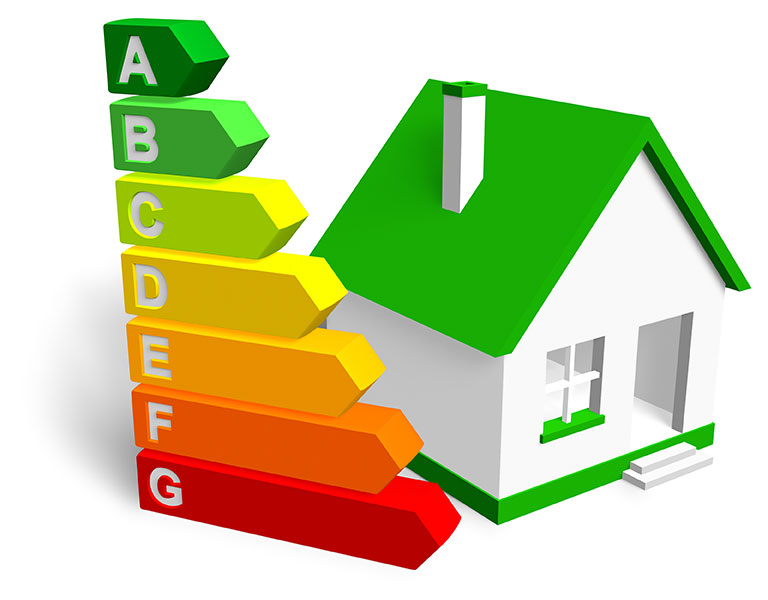The energy identity in Turkey comes as a pioneering measure that encourages the adoption of building and design methods that take into account sustainability and efficiency, so we will review the details of the importance and advantages of the energy identity in Turkey, in addition to the positive effects that it can have to enhance the environment and society as a whole.
What is meant by the energy identity in Turkey?

The energy identity of the property (EKB) is an official document issued by the Ministry of Energy and Natural Resources in Turkey or its competent authorities and this document is concerned with evaluating the efficiency of buildings in terms of energy consumption and protecting the environment from gaseous emissions.
This document contains important information including:
1. Energy consumption rating for the building.
2. Classification of the rate of greenhouse gas emissions from the building.
3. Evaluate the building's thermal insulation properties.
4. Efficiency of heating and cooling systems in the building.
The energy identity of real estate in Turkey is valid for ten years from the date of its first issuance, grants property owners the power to sell and rent throughout this period according to the first license, and requires renewal of the issuance of the document after its expiration.
The new decision stipulates the presence of two copies of the energy identity for the property, as the first copy is hung at the entrance of the building, and the second copy is kept with the building management or its owner and in the framework of this decision, this document will become required in the transactions of buying or renting any real estate in Turkey as of the date of implementation of the decision.
About the buildings that require energy identity in Turkey
According to the Turkish legislation adopted as of 1/1/2020, it is required to issue an "Energy ID" for a variety of buildings in Turkey, including:
Residential buildings:
1. Commercial buildings intended for offices, companies, and other businesses.
2. Public buildings such as schools, hospitals and municipalities.
3. Workshops and factories.
Warehouses:
1. Buildings that are expected to be used for more than two years.
2. Buildings with an area of more than 50 square meters.
Buildings in Turkey are divided into two main types:
Modern Buildings: It is concerned with the buildings and complexes whose construction began after 2011.
Existing Buildings: These are buildings and complexes that were built before 2011.
What are the energy identity criteria in Turkey?

1. Taking into account energy-saving methods in construction.
2. Evaluation of the quality of thermal insulation applied to the building.
3. Evaluation of the quality of thermal insulation of windows and doors.
4. Measuring the efficiency of the equipment used for cooling and heating inside the building.
5. Evaluation of the efficiency and economical lighting lamps and the use of energy-saving techniques.
6. Analysis of the quality of the external and internal structure of the building from the architectural point of view.
7. Estimating the quality of electricity and gas installations used inside the building.
8. Evaluate ventilation systems and make use of natural lighting.
Where is the energy identity obtained in Turkey?
The Ministry of Energy and Natural Resources in Turkey grants permits to several consulting companies to work in the field of energy efficiency assessment, and these companies are granted the authority to issue "Energy Identity in Turkey" documents for buildings these documents are known in Turkey as "EVD".
What is the consequence of buildings that do not have an energy identity in Turkey?
1. For modern buildings, obtaining an “Energy ID in Turkey” is necessary, as it is not allowed to issue a Tapu for buildings without obtaining this document and the company executing the construction of modern buildings is given a period of up to 30 days to complete the procedures for obtaining an "energy identity in Turkey" and in case of non-compliance with the conditions, a delay fine of approximately 500 TL can be imposed.
2. For old buildings, also known as "existing buildings", the new decision prohibits the sale, purchase, or lease of apartments in Turkey without obtaining an "Energy ID in Turkey" from 1/1/2020 onwards.
3. If any tampering with the reports required to issue the "Energy Identity in Turkey" is discovered by the construction company or the entity responsible for constructing the building, financial penalties can be imposed, in addition to canceling the license and preventing the company or the concerned entity from carrying out any construction work for five consecutive years.
Classification of buildings according to the energy identity in Turkey
The Energy Efficiency Classification System in Turkey, which is supervised by the Ministry of Energy and Natural Resources, is based on seven levels that express the energy efficiency of homes and buildings, and these levels are recorded in the energy identity document in Turkey.
The following ratings are offered: A, B, C, D, E, F, G, and these ratings are for specific parts of buildings, as the efficiency rating can vary from part to part depending on its performance.
To obtain the energy identity in Turkey, the following conditions must be met: A-rated buildings are classified as the most energy efficient, while G-rated buildings are rated as the lowest level of efficiency, as the C classification represents habitable buildings, which is the minimum required to grant energy identity in Turkey to residential buildings and this system contributes to promoting improved energy efficiency in buildings and improving environmental sustainability.
What are the documents required to obtain an energy identity in Turkey?
1. TAPU document in Turkey: Different types of TAPU are granted in Turkey before construction begins and is used as a basic document for obtaining an Energy Identity (EKB), however, a basic building permit is not granted until the building has been assessed to C-level standards or above.
2. Architectural construction project report: This report includes various details, including the construction site, number of floors, areas, the external structure of the building, internal partitions, and balconies.
3. Thermal insulation report: This report deals with aspects of thermal insulation for external and internal walls, ceilings, floors, doors, and windows.
4. Electricity installations report: This report includes information on lighting fixtures and electrical installations used in the building.
5. Additional Reports: There may be additional reports requested according to the situation, such as reports on cooling and ventilation systems and even renewable energy such as solar energy if available.
Related Articles


